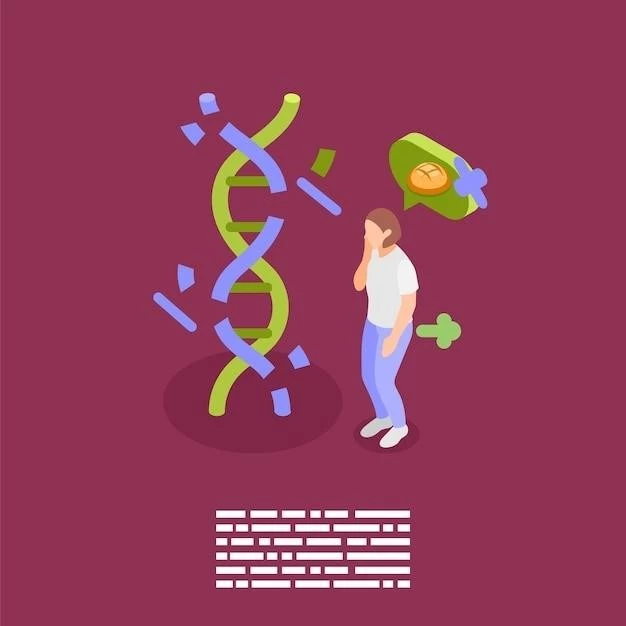Introduction to Chromosome 21 Monosomy
Chromosome 21 monosomy is caused by the absence of one copy of chromosome 21. This leads to distinct symptoms and requires specialized diagnostic procedures. Treatments involve various medical interventions and therapeutic approaches tailored to individual needs. Genetic counseling plays a crucial role in family planning and risk assessment. Ongoing research aims to uncover new breakthroughs in treatment for this condition;
Definition and Overview
Chromosome 21 monosomy٫ also known as Monosomy 21٫ is a genetic condition characterized by the absence of one chromosome 21 in cells. This results in a chromosomal abnormality that can lead to developmental delays٫ intellectual disabilities٫ and distinct physical features. Understanding the genetic mechanisms underlying this condition is crucial for accurate diagnosis and appropriate management strategies. Genetic counseling plays a key role in providing support and guidance to individuals and families affected by Chromosome 21 Monosomy.
Causes of Chromosome 21 Monosomy
Chromosome 21 monosomy usually occurs due to errors during cell division, resulting in the absence of one copy of chromosome 21. This genetic anomaly can be sporadic or inherited, with advanced maternal age being a risk factor for non-disjunction events leading to Monosomy 21.
Trisomy 21 and Genetic Mechanisms
Trisomy 21, the presence of an extra chromosome 21, is a common genetic mechanism leading to Chromosome 21 Monosomy. This condition often arises from nondisjunction during cell division, resulting in three chromosomes 21 instead of the usual pair. Trisomy 21 can increase the likelihood of Chromosome 21 Monosomy through subsequent errors in cell division that lead to the loss of one chromosome 21.
Risk Factors Associated with Chromosome 21 Monosomy
Advanced maternal age, particularly maternal age over 35, is a significant risk factor for Chromosome 21 Monosomy. The likelihood of chromosomal non-disjunction events leading to Monosomy 21 increases with maternal age. Additionally, certain parental chromosomal rearrangements or genetic predispositions may also contribute to the risk of experiencing this chromosomal abnormality.
Symptoms and Diagnosis of Chromosome 21 Monosomy
Distinct physical, cognitive symptoms aid in diagnosing Chromosome 21 Monosomy. Specialized testing confirms diagnosis accurately.
Physical and Cognitive Symptoms
Physical symptoms of Chromosome 21 Monosomy include characteristic facial features, heart defects, and developmental delays. Cognitive symptoms often involve intellectual disabilities, learning difficulties, and language delays. Diagnosis may involve clinical evaluation, imaging studies, and genetic testing to assess the extent of physical and cognitive manifestations associated with this condition.
Diagnostic Procedures and Testing
Diagnosing Chromosome 21 Monosomy involves a multidisciplinary approach. Diagnostic procedures may include genetic testing such as karyotyping, FISH analysis, and microarray testing to identify chromosomal abnormalities. Clinical evaluations by healthcare professionals specialized in genetic disorders play a crucial role in confirming the diagnosis and assessing the comprehensive health needs of individuals with this condition.
Treatment Options for Chromosome 21 Monosomy
Treatments include tailored medical interventions and therapeutic approaches to address individual needs effectively.
Medical Interventions
Medical interventions for Chromosome 21 Monosomy aim to manage associated health conditions such as heart defects, respiratory issues, and gastrointestinal problems. Surgical procedures may be required to address specific structural abnormalities. Close monitoring and coordinated care by healthcare professionals are essential to optimize the overall health and well-being of individuals with Chromosome 21 Monosomy.
Therapeutic Approaches
Therapeutic approaches for Chromosome 21 Monosomy focus on multidisciplinary interventions to support developmental, cognitive, and social needs. Early intervention services, speech therapy, physical therapy, and educational support are vital components of a comprehensive treatment plan. Individualized therapeutic strategies aim to enhance quality of life and promote independence for individuals with Chromosome 21 Monosomy.
Genetic Counseling for Chromosome 21 Monosomy
Genetic counselors provide valuable guidance in family planning and assessing the risk of chromosome 21 monosomy.
Role of Genetic Counselors
Genetic counselors play a vital role in providing information, support, and guidance to individuals and families affected by Chromosome 21 Monosomy. They assess the risk of genetic conditions, facilitate genetic testing, and help families understand the implications of the diagnosis. Genetic counselors work collaboratively with healthcare professionals to ensure comprehensive care and empower informed decision-making regarding family planning and genetic risks.
Family Planning and Risk Assessment
Genetic counselors offer support in family planning decisions for individuals at risk of Chromosome 21 Monosomy. They provide detailed risk assessments based on family history, genetic testing results, and recurrence risks. By understanding the genetic implications, families can make informed choices regarding reproductive options and potential outcomes related to Chromosome 21 Monosomy.

Research Advances in Chromosome 21 Monosomy
Ongoing studies aim to uncover new insights and potential breakthroughs in the treatment of Chromosome 21 Monosomy.
Current Studies and Findings
Current research on Chromosome 21 Monosomy focuses on understanding the genetic mechanisms underlying the condition, exploring potential therapeutic targets, and improving diagnostic methods. Studies also investigate the impact of this chromosomal abnormality on physical, cognitive, and behavioral development. By translating scientific findings into clinical practice, researchers aim to enhance the quality of care and outcomes for individuals with Chromosome 21 Monosomy.
Potential Breakthroughs in Treatment
Emerging research in Chromosome 21 Monosomy holds promise for innovative treatment approaches, such as gene therapies and targeted interventions. Scientists are investigating novel strategies to address the specific challenges associated with this genetic condition, aiming to improve outcomes and enhance the quality of life for individuals affected by Chromosome 21 Monosomy. These potential breakthroughs offer hope for more effective management and care in the future.
Impact of Chromosome 21 Monosomy on Development
Chromosome 21 Monosomy affects cognitive, behavioral, and social development, necessitating specialized care and support.
Cognitive and Behavioral Development
Chromosome 21 Monosomy profoundly impacts cognitive development, often leading to intellectual disabilities and learning challenges. Individuals may exhibit delayed language skills, memory deficits, and difficulty with abstract thinking. Behavioral issues such as impulsivity and emotional regulation can also be present. Early intervention and tailored support services play vital roles in promoting optimal cognitive and behavioral outcomes for individuals with this condition.
Social and Emotional Implications
Chromosome 21 Monosomy can impact social interactions and emotional development٫ leading to challenges in forming relationships and navigating social situations. Individuals may experience heightened sensitivity٫ difficulty understanding social cues٫ and challenges with emotional regulation. Multidisciplinary support services٫ including counseling and social skills training٫ are essential in addressing the social and emotional needs of individuals with Chromosome 21 Monosomy.
Supportive Care for Individuals with Chromosome 21 Monosomy
Multidisciplinary care teams provide comprehensive support services tailored to individual needs and enhance quality of life.
Multidisciplinary Care Teams
Collaborative multidisciplinary care teams for individuals with Chromosome 21 Monosomy comprise healthcare professionals from various fields such as genetics, pediatrics, psychology, speech therapy, and social work. This cohesive approach ensures comprehensive evaluation, treatment, and support tailored to the complex needs of individuals with this genetic condition. By working together, these teams provide holistic care to enhance developmental outcomes and quality of life.
Adaptive Resources and Services
Individuals with Chromosome 21 Monosomy benefit from a range of adaptive resources and services tailored to their unique needs. These may include assistive technologies٫ educational accommodations٫ specialized therapies٫ and community support programs. By providing access to these adaptive resources and services٫ individuals with Chromosome 21 Monosomy can enhance their independence٫ skills development٫ and overall well-being٫ improving their quality of life.
Prognosis and Long-Term Outcomes of Chromosome 21 Monosomy
Understanding prognosis and long-term outcomes is essential for providing effective care and support to individuals.
Lifespan Expectancy
Individuals with Chromosome 21 Monosomy often have a reduced lifespan compared to the general population, primarily due to associated health complications. Regular medical monitoring and specialized care can help manage health conditions and improve overall quality of life, potentially impacting lifespan outcomes. Understanding the factors contributing to lifespan expectancy is crucial for providing appropriate long-term care to individuals with Chromosome 21 Monosomy.
Quality of Life Considerations
Assessing quality of life is crucial in optimizing care for individuals with Chromosome 21 Monosomy. Tailored support services, access to adaptive resources, and social integration play key roles in improving overall well-being. Addressing physical, cognitive, and emotional needs can enhance quality of life and promote independence. Holistic care approaches aim to maximize the quality of life for individuals affected by Chromosome 21 Monosomy.
